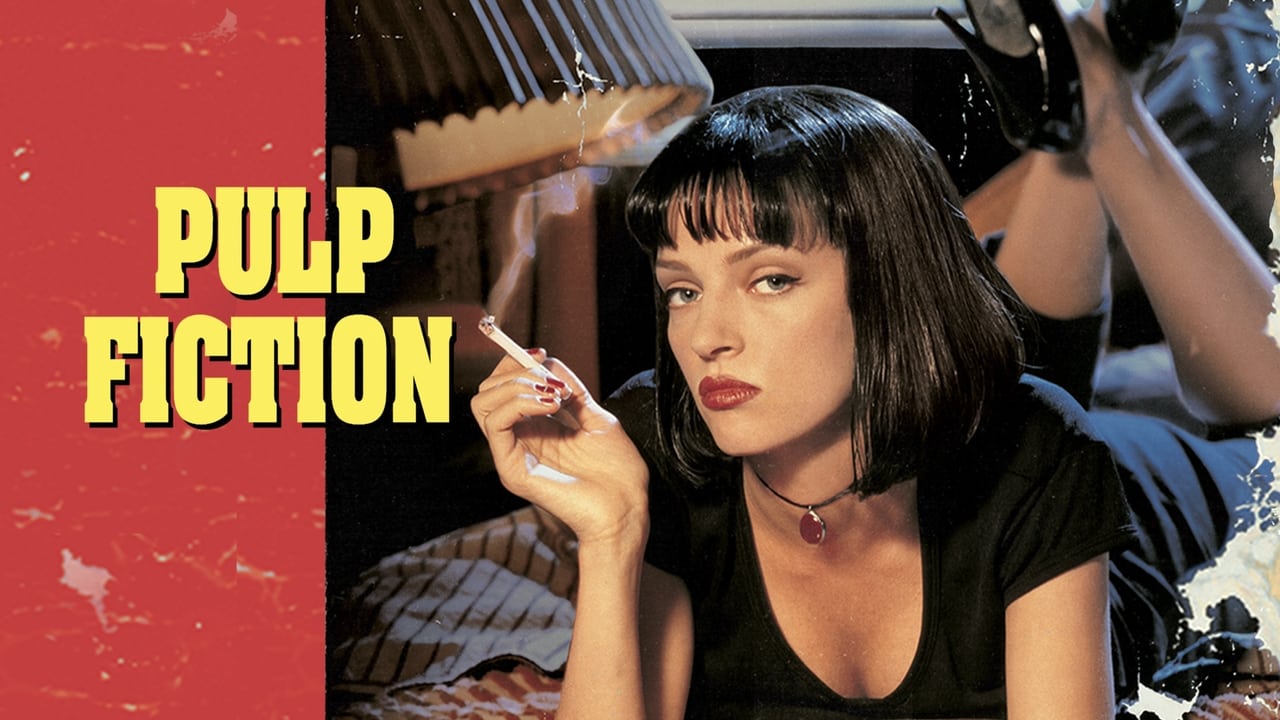
Pulp Fiction, directed by Quentin Tarantino, is a cultural phenomenon that has left an indelible mark on the world of cinema. From its non-linear storytelling to its iconic characters and unforgettable dialogue, this film continues to captivate audiences decades after its release. In this article, we'll delve into 18 fascinating fun facts about Pulp Fiction, shedding light on its production, impact, and enduring legacy. Whether you're a die-hard fan or a casual viewer, these insights will deepen your appreciation for the film and the creative genius behind it. So sit back, relax, and prepare to journey into the enthralling world of Pulp Fiction, where crime, wit, and cinematic brilliance collide in a mesmerizing tapestry of storytelling.
Key Takeaways:
- “Pulp Fiction” revolutionized storytelling with its non-linear structure, inspiring filmmakers and captivating audiences worldwide with its iconic characters and memorable quotes.
- Quentin Tarantino’s visionary film “Pulp Fiction” redefined crime cinema, sparking a resurgence of independent filmmaking and leaving an indelible mark on the world of cinema.
Pulp Fiction was released in 1994.
Quentin Tarantino's groundbreaking film, "Pulp Fiction," hit the silver screen in 1994, captivating audiences with its non-linear narrative and eclectic characters.
The movie's budget was $8 million.
Despite its modest budget, "Pulp Fiction" became a cultural phenomenon and a commercial success, grossing over $200 million worldwide.
Quentin Tarantino co-wrote the screenplay with Roger Avary.
The dynamic duo crafted a script that defied traditional storytelling, contributing to the film's unique and influential style.
"Pulp Fiction" won the Palme d'Or at the Cannes Film Festival.
The prestigious award recognized Tarantino's exceptional directorial skills and the film's impact on the cinematic landscape.
John Travolta's career experienced a resurgence after starring in "Pulp Fiction."
His memorable role as Vincent Vega revitalized his acting career, earning him critical acclaim and multiple award nominations.
The character Jules Winnfield was originally written for Samuel L. Jackson.
Tarantino specifically tailored the role for Jackson, solidifying his status as the perfect embodiment of the character.
The iconic dance scene between Mia Wallace and Vincent Vega was inspired by Jean-Luc Godard's "Bande à part."
Tarantino paid homage to the French New Wave classic, infusing "Pulp Fiction" with a sense of homage and innovation.
The mysterious briefcase's contents were never revealed in the film.
This deliberate ambiguity sparked endless speculation and fan theories, adding an enigmatic layer to the narrative.
The film's nonlinear narrative structure challenged traditional storytelling conventions.
Tarantino's bold approach to storytelling captivated audiences and reshaped cinematic norms, leaving a lasting impact on the industry.
"Pulp Fiction" popularized the use of nonlinear storytelling in mainstream cinema.
The film's innovative narrative structure inspired a new wave of filmmakers and reshaped audience expectations.
The soundtrack featured an eclectic mix of music genres.
From surf rock to soul, the soundtrack contributed to the film's unique atmosphere and cultural impact.
Uma Thurman's portrayal of Mia Wallace garnered widespread acclaim.
Her captivating performance solidified Mia as a memorable and influential character in cinematic history.
The film's dialogue and memorable quotes became iconic pop culture references.
Lines such as "Say 'what' again!" and "Zed's dead, baby. Zed's dead" permeated popular culture, further cementing the film's legacy.
"Pulp Fiction" redefined the crime genre with its unconventional approach.
The film's blend of dark humor, intense violence, and complex characters set a new standard for crime cinema.
The nonlinear structure allowed the audience to piece together the interconnected storylines.
Viewers were challenged to engage actively with the narrative, resulting in a more immersive and thought-provoking cinematic experience.
The film's release sparked a resurgence of independent cinema in the 1990s.
"Pulp Fiction" revitalized the independent film scene, paving the way for a new era of bold and innovative storytelling.
The character of Butch Coolidge was originally written for Matt Dillon.
However, Bruce Willis's portrayal added a new dimension to the character, contributing to the film's diverse ensemble cast.
"Pulp Fiction" continues to influence filmmakers and entertain audiences worldwide.
Decades after its release, the film remains a timeless classic, leaving an indelible mark on the world of cinema.
The "18 Pulp Fiction Fun Facts" offer a captivating glimpse into the iconic film's legacy, showcasing the impact of Tarantino's visionary storytelling and the enduring allure of "Pulp Fiction." With its groundbreaking narrative structure, memorable characters, and cultural influence, "Pulp Fiction" continues to captivate audiences and inspire filmmakers, cementing its status as a timeless masterpiece.
Conclusion
In conclusion, Pulp Fiction continues to captivate audiences with its timeless blend of captivating storytelling, memorable characters, and iconic dialogue. The film's impact on pop culture and the cinematic landscape is undeniable, cementing its status as a classic. With its non-linear narrative and bold stylistic choices, Pulp Fiction remains a testament to Quentin Tarantino's visionary prowess as a filmmaker. Its enduring legacy serves as a testament to the power of storytelling and the art of filmmaking, ensuring that Pulp Fiction will continue to be celebrated for generations to come.
FAQs
What makes Pulp Fiction a classic?Pulp Fiction is revered as a classic due to its groundbreaking non-linear narrative, compelling characters, and iconic dialogue. The film's bold stylistic choices and innovative storytelling techniques have solidified its status as a cinematic masterpiece.
Why is Pulp Fiction considered influential?Pulp Fiction is considered influential for its impact on pop culture, redefining the crime genre, and inspiring a new wave of filmmakers. Its non-traditional structure and unique approach to storytelling have left an indelible mark on the film industry, influencing countless movies that followed.
Was this page helpful?
Our commitment to delivering trustworthy and engaging content is at the heart of what we do. Each fact on our site is contributed by real users like you, bringing a wealth of diverse insights and information. To ensure the highest standards of accuracy and reliability, our dedicated editors meticulously review each submission. This process guarantees that the facts we share are not only fascinating but also credible. Trust in our commitment to quality and authenticity as you explore and learn with us.
